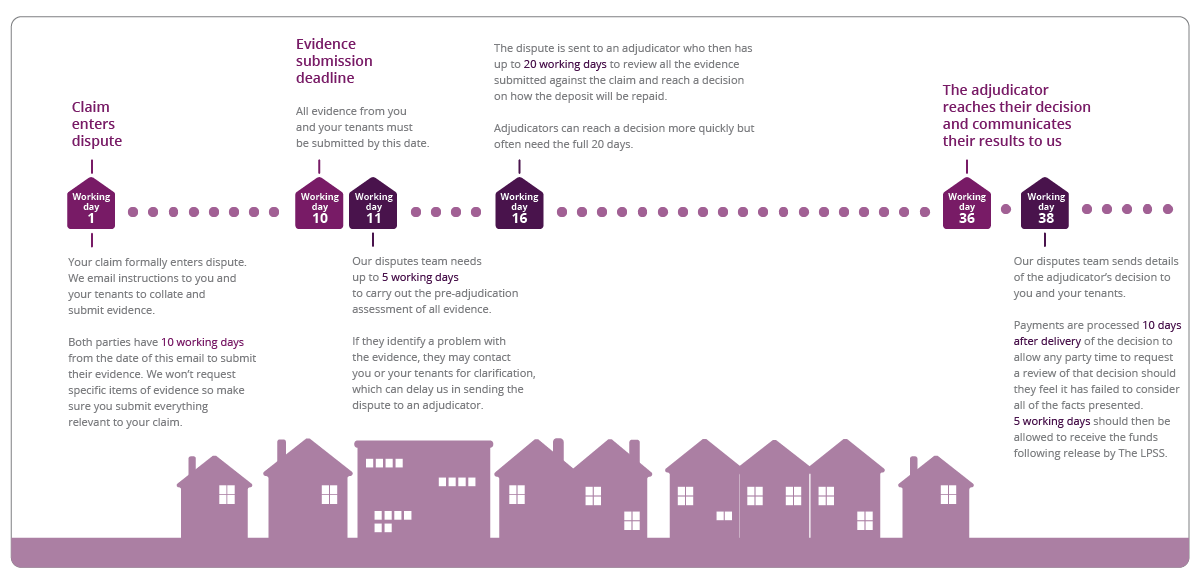With Spring in the air, gardens across the country are springing into life. Gardening is a common cause of disputes at the end of a tenancy so if you’re a landlord whose tenants are expected to maintain the garden, now is a good time to remind them of their responsibilities.
We’ve seen cases where tenants pulled up thousands of pounds worth of exotic plants believing they were weeds, while in another case the tenant “accidentally” felled a healthy 20-year-old tree.
Another dispute saw tenants neglect their lawn during their tenancy, but rather than restore it to check-in condition, they simply left a packet of grass seeds for the landlord.
Landlords also need to maintain a sense of perspective on their tenants’ ability to maintain the outdoor space. One lawn repair claim was, in the words of the adjudicator “more in keeping with creating a professional grass tennis court than a piece of turfed ground outside the property”.
To help you and your tenants keep nature in balance and under control, we’ve created nine top tips for garden care. Share them with your tenants to weed out potential problems and make everything come up smelling of roses when it comes to garden maintenance.
“Everyone has their own view on what makes a good garden – and a good gardener. Tenants have a right to reasonable use of the garden, and a responsibility to leave the space in good condition at check-out whatever their interest or ability to nurture plants.”
Alexandra Coghlan-Forbes
Head of Dispute Resolution
If you want the tenant to maintain the garden, make sure it’s in the tenancy agreement
The tenant must maintain the garden if the tenancy agreement specifies so. You may choose to provide tools for this, but if you opt not to and a tenant doesn’t have them, they should borrow or buy the equipment needed to maintain any outdoor space.
Clearly communicate your ‘garden expectations’
Tell your tenants at the start of the tenancy how you expect the state of the garden to be at the end of the tenancy. Also make them aware of any plant you consider particularly important to the character of the garden or that has specific care requirements.
Be realistic about the tenant’s capabilities
Tenants aren’t house-sitters and may not be interested or knowledgeable about gardening. You shouldn’t expect them to take care of rare plants or any outside domestic or other creatures, for example, pond fish.
You’re still responsible for regular maintenance of fixed features
You should make arrangements for the fixing steps, paving slabs, fencing or other features if needed. If a property has swimming pool, you and your tenants should explicitly agree who maintains it.
Use your interim tenancy inspections to assess the condition of the garden
Treat the garden the same as the rest of your property and carry out interim inspections to assess its condition. Don’t forget you need permission from your tenant. If you need to carry out any repairs or garden work you should give 24 hours’ notice and undertake the work at a reasonable time of day.
Keep up-to-date records
Take seasonal photographs of any outdoor space before and after a tenancy, including showing the size of the area. You can’t claim that a garden is a ‘mess’ at the end of a tenancy if evidence proves that only a small section of the overall space is unkempt or if the garden was in a similar condition when the renters moved in.
Factor in the season or garden layout when performing the check-out
During the winter the outside space typically looks untidy during colder months. Sections of a garden may also experience different conditions, for example lack of light or water, which means it can be challenging for plants to grow there.
Remind your tenants to report problems promptly
Tenants should report any outside damage to a garden or its fixtures, as they would any damage to the inside of a property.
Tell your tenants to give themselves enough time to clear up outside
Tidying a garden can turn out to be a bigger job than some tenants imagine, so tell them not to leave garden clean-ups to the last minute and remind them to use designated gardening tools.

























